Ideas
Ideas, New in Ceasefire - Saturday, November 6, 2010 12:00 - 16 Comments
Music Is the government infiltrating the UK grime scene?

In a powerful exclusive piece, Jody McIntyre, a proponent of grime and Hip Hop music as vectors of revolutionary social change, takes two grime artists, Ghetts and Skepta, to task for seemingly allowing their message to be co-opted, and dictated, by the establishment.
Ideas, New in Ceasefire, Profiles - Thursday, October 28, 2010 0:00 - 13 Comments
Profile: Slavoj Žižek – The Dog’s Bollocks … at the Media Dinner Party
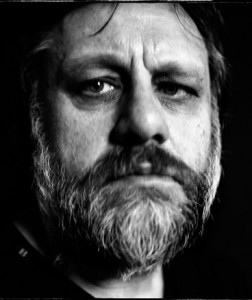 In an exclusive essay, Paul Taylor explains why Slavoj Žižek stands out so forcefully from the conventional commentariat and debunks two frequently voiced objections to his work – the obscene humour and his refusal to provide ready-made solutions for the problems he so readily identifies.
In an exclusive essay, Paul Taylor explains why Slavoj Žižek stands out so forcefully from the conventional commentariat and debunks two frequently voiced objections to his work – the obscene humour and his refusal to provide ready-made solutions for the problems he so readily identifies.
Ideas, New in Ceasefire - Wednesday, October 13, 2010 5:36 - 11 Comments
Politics | ‘Ricin!’: the plot that never was
 In January 2003, the world media erupted with news of how a deadly Al-Qaeda poison attack on London had been foiled. The story was soon part of Colin Powell's infamous presentation to the UN. But when matters came to trial, a very different picture emerged. In an exclusive essay, Lawrence Archer, foreman of the jury, shows how a minor story was "shamelessly distorted by government, media and security forces" to push their own agendas.
In January 2003, the world media erupted with news of how a deadly Al-Qaeda poison attack on London had been foiled. The story was soon part of Colin Powell's infamous presentation to the UN. But when matters came to trial, a very different picture emerged. In an exclusive essay, Lawrence Archer, foreman of the jury, shows how a minor story was "shamelessly distorted by government, media and security forces" to push their own agendas.
Ideas, New in Ceasefire, Special Reports - Tuesday, October 12, 2010 7:48 - 4 Comments
Special Report The ugly side of hospitality
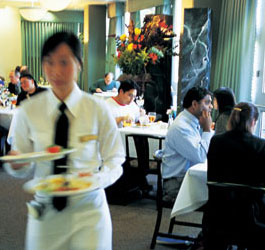 As a recession induced by the financial sector takes its toll on the public, more and more people are turning to temporary and part-time work. What’s it like to work in a temporary job in the UK, without a contract, being paid cash in hand? Jumanah Younis spent 3 weeks finding out – and discovered a dark side to employment in Britain.
As a recession induced by the financial sector takes its toll on the public, more and more people are turning to temporary and part-time work. What’s it like to work in a temporary job in the UK, without a contract, being paid cash in hand? Jumanah Younis spent 3 weeks finding out – and discovered a dark side to employment in Britain.
Diary of a Domestic Extremist, Ideas, New in Ceasefire - Wednesday, October 6, 2010 2:00 - 49 Comments
Diary of a Domestic Extremist: Why I hate activism
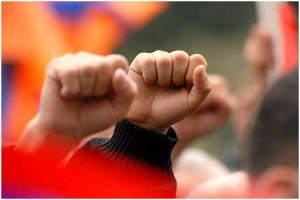 What does it really mean to be an "activist"? Are activists deluding themselves about being agents of radical change? In an impassioned polemic, Mikhail Goldman argues that today's activist movements, far from being the creative, truly revolutionary wave they purport to be, risk becoming, themselves, agents of bigotry, sexism, and elitism.
What does it really mean to be an "activist"? Are activists deluding themselves about being agents of radical change? In an impassioned polemic, Mikhail Goldman argues that today's activist movements, far from being the creative, truly revolutionary wave they purport to be, risk becoming, themselves, agents of bigotry, sexism, and elitism.
Ideas, Interviews - Thursday, September 30, 2010 0:00 - 9 Comments
Interview">Mark Fisher: “Crises of Capitalism won’t in and of themselves deliver a better world” Interview
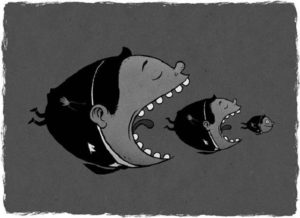 Mark Fisher’s book 'Capitalist Realism: Is There No Alternative?'is a persuasive diagnosis of contemporary society, an analysis of its political impasses and a call for fresh organization and thought. In a wide-ranging interview, from Spinoza to Deleuze to Wall-E, from Supernanny to post-autonomist theory, Ceasefire's Alex Andrews talked to Mark Fisher about his book, education, the internet and the prospect of moving beyond capitalist realism.
Mark Fisher’s book 'Capitalist Realism: Is There No Alternative?'is a persuasive diagnosis of contemporary society, an analysis of its political impasses and a call for fresh organization and thought. In a wide-ranging interview, from Spinoza to Deleuze to Wall-E, from Supernanny to post-autonomist theory, Ceasefire's Alex Andrews talked to Mark Fisher about his book, education, the internet and the prospect of moving beyond capitalist realism.
Ideas, Interviews - Thursday, September 23, 2010 9:41 - 12 Comments
Interview Noam Chomsky (2010)
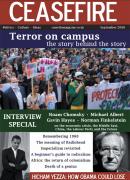 In an exclusive major interview, Noam Chomsky, considered by many to be the world's greatest public intellectual, responds to questions posed by Ceasefire Editor Hicham Yezza on the Middle East, global warming, the financial crisis, the future of the left, Iran, and on why all states are unacceptable.
In an exclusive major interview, Noam Chomsky, considered by many to be the world's greatest public intellectual, responds to questions posed by Ceasefire Editor Hicham Yezza on the Middle East, global warming, the financial crisis, the future of the left, Iran, and on why all states are unacceptable.
Columns, Ideas, In Theory - Friday, September 10, 2010 3:25 - 11 Comments
In Theory Why Deleuze (still) matters: States, war-machines and radical transformation
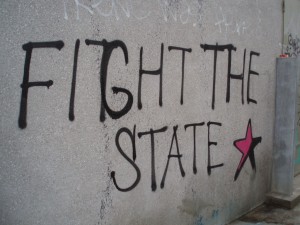 In the latest of his 'In Theory' columns, political theorist Andrew Robinson examines a crucial segment within the extensive and monumental legacy of Giles Deleuze. In his piece, Robinson shows how Deleuze's own subversion of theoretical assumptions has been often misread, and misapplied, by disciples and foes alike. In particular, Robinson addresses one of Deleuze's central concepts, that of the 'War Machine'.
In the latest of his 'In Theory' columns, political theorist Andrew Robinson examines a crucial segment within the extensive and monumental legacy of Giles Deleuze. In his piece, Robinson shows how Deleuze's own subversion of theoretical assumptions has been often misread, and misapplied, by disciples and foes alike. In particular, Robinson addresses one of Deleuze's central concepts, that of the 'War Machine'.
Features, Ideas, Music & Dance - Sunday, August 29, 2010 23:54 - 7 Comments
Formed a band? Made a record? Now what?
 Every starting band knows the situation: you record something, spend more than you can afford on getting a few hundred professionally-printed copies made, and then you spend ages wait for sales that never come. As someone who's seen it all before, Alex Andrews shares top 5 tips on how to sell your record the clever way.
Every starting band knows the situation: you record something, spend more than you can afford on getting a few hundred professionally-printed copies made, and then you spend ages wait for sales that never come. As someone who's seen it all before, Alex Andrews shares top 5 tips on how to sell your record the clever way.

